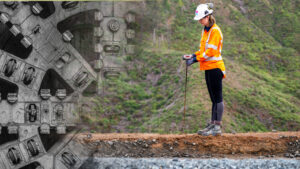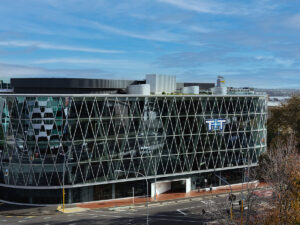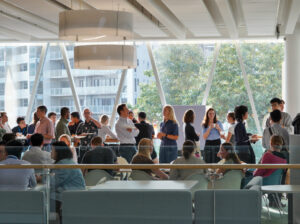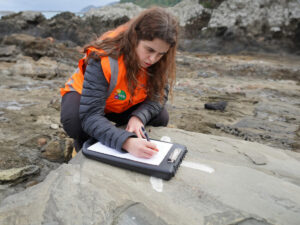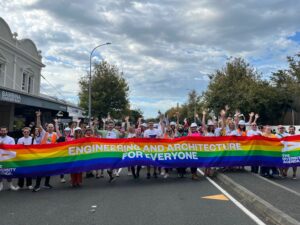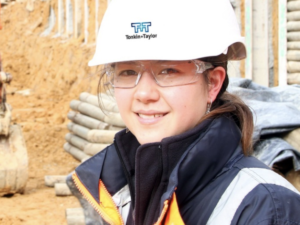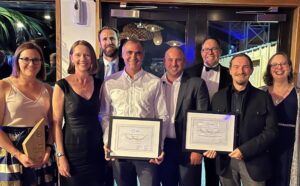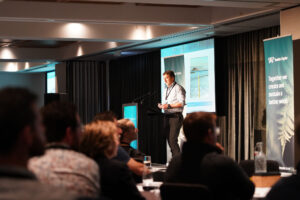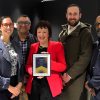
Meet Rekha Kharbanda, Executive Leader – Digital at Tonkin + Taylor Group.
Rekha is set to share insights into the changing consulting world at the upcoming 2022 ACE conference in Rotorua, with a focus on how the industry can improve engineering solutions using digital platforms to move into a new consulting era.
We spoke to Rekha about what these changes might look like, and the importance of keeping up with the customer journey.
How can consultants be leaders in a changing environment?
The consulting world is changing due to the impacts of global shortages of engineering resources.
Clients increasingly ask for consultants to do more with less. There is a lot of opportunity for us to deliver this, but we must think differently.
It’s time to transform our ways of working. If we can become digitally enabled in our responses and solve these problems with data and insights, we can be more productive.
Digital transformation can help us move from reactively to proactively solving problems, positioning consultants as leaders and trusted advisors in this space.
Why do we need to focus on both value protection and value creation?
The engineering world and client demands are rapidly changing and there are pressures around our sector to be more productive and digitised.
This means we need to protect the value of what we do, enabling our engineers to be technically excellent, while also ensuring the best outcomes for our clients and communities are achieved. This requires the professional services business model to pivot to an alternate model that creates sustainable revenue streams going forward.
Tonkin + Taylor is an employee-owned organisation – the custodians of a successful 60-year-old Kiwi business. It’s upon us to make sure that we protect that legacy and pass it on to our future generations.
The only way we can do that in this more complex, more demanding changing environment is to move from time and cost-based consulting to consulting that focuses on value for the client and our communities. Doing so creates a sustainable future for our younger generations, so they can benefit from the fruits of our labour.
How can we reimagine the way we deliver and embrace platform-led transformation?
Moving from per-project digital solutions to a platform-led approach can feel like a mammoth change – But by thinking big while starting small, platform-led transformation is both achievable and successful.
The organisations today don’t necessarily have to build a platform to embed platform thinking . If organisations embrace platform thinking to reflect in business models , operating models and technology that will also help them achieve the transformation outcomes.
What’s most important to recognise is that technology doesn’t transform businesses – it’s the people leveraging the technology that do. Until we really shift our mindsets to embrace platform-led transformation as a culture-change piece, we won’t be able to make positive change.
Culture change starts by helping people see the big picture and then breaking it down into smaller, tangible steps.
This is the approach we’ve taken at Tonkin + Taylor. Our momentum started when we demonstrated the value that digital solutions can bring our engineers in their day-to-day jobs.
Embedding these digital tools, whether it’s digital data capture, analysis, or spatial visualisation, has empowered them to solve their immediate client challenges.
They can now see how these tools fit in with our much more ambitious vision to integrate and use the data from these individual tools for much bigger, more complex problems – moving the engineering sector from being deterministic (calculating firm outcomes) in its approach to being probabilistic (identifying possibilities).
What’s influencing the move from a deterministic to a probabilistic era of engineering?
We all know climate change is here, and extreme unforeseen events are happening sooner than we thought they would. For example, the Nelson flooding has seen huge losses to people’s homes and livelihoods.
This will happen more frequently, so engineering challenges are no longer linear problems to solve, but much more complex and uncertain in scope, size, and outcome.
From a human perspective, we can only do so much. But technology can help with prediction and other complex calculation, simulation and modelling tasks, enabling us to solve challenges at a much larger scale, moving us into that probabilistic space.
Technology is advancing at an incredibly rapid pace. The consulting world (and what can be achieved) has changed so much in 20 years, really helping engineers to unlock their potential for more sustainable futures.



